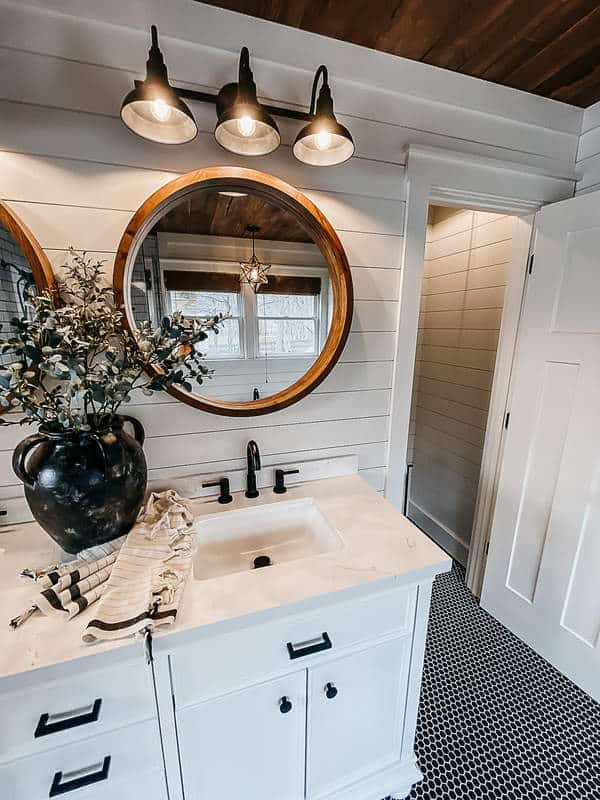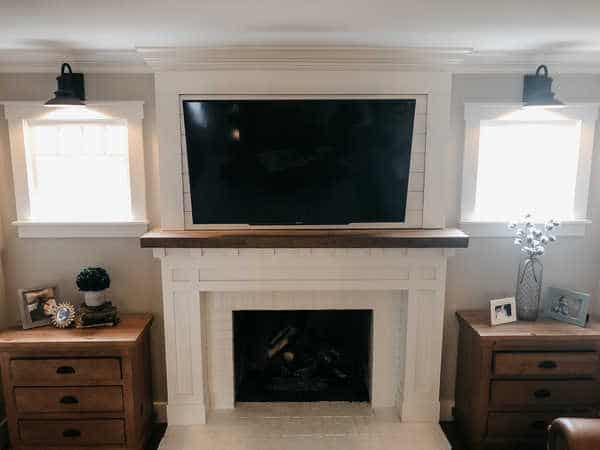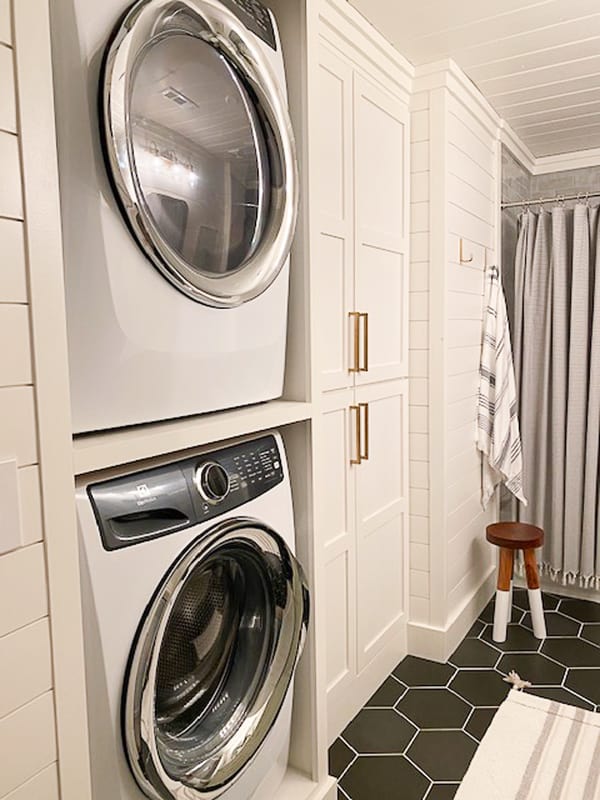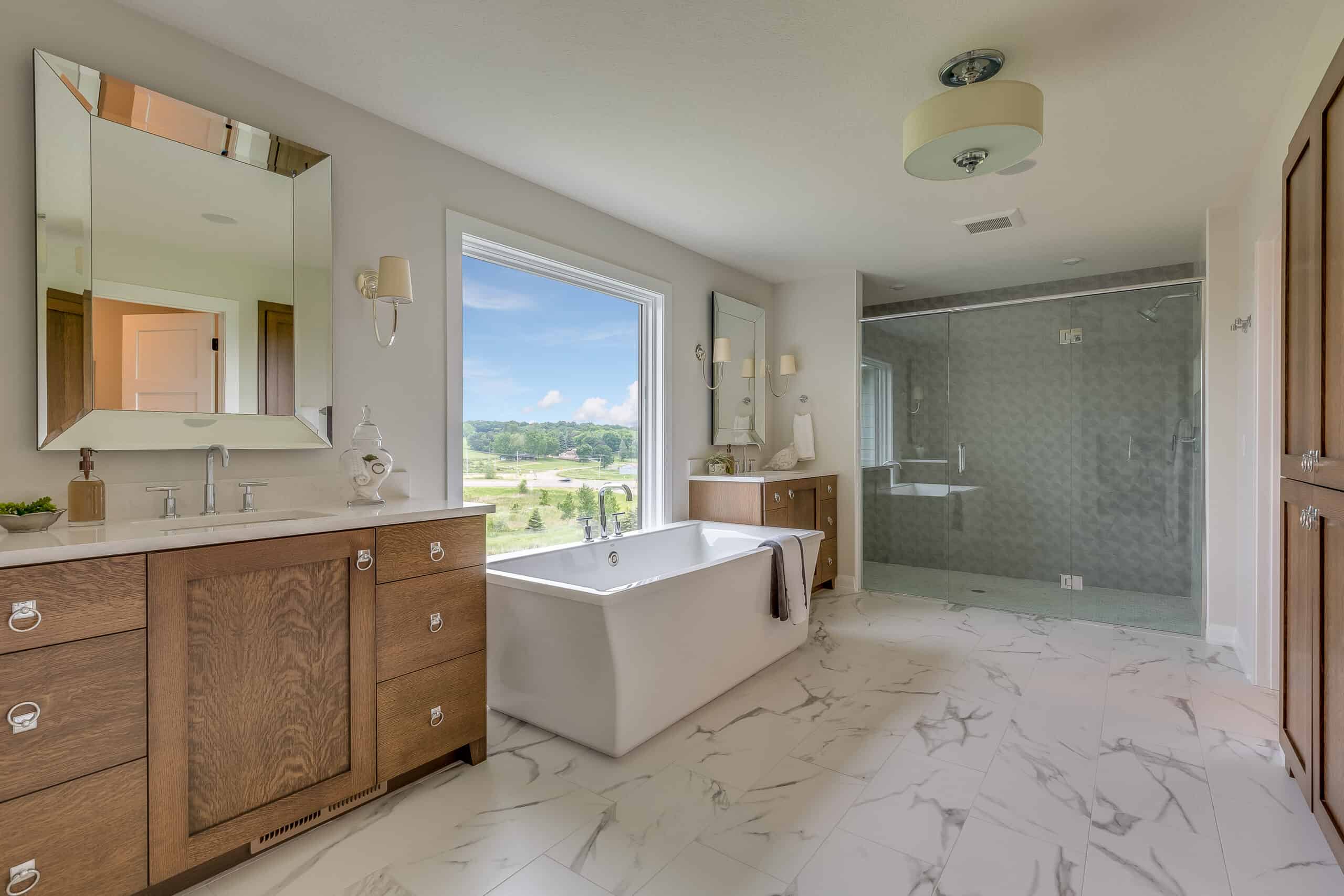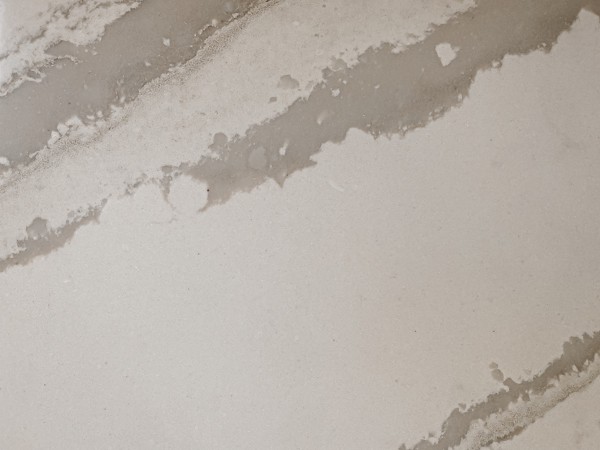Quartz vs marble: find out what’s right for you
While quartz and marble may look similar, there are some vast differences between the two countertop surfaces.
Between price, on-going maintenance, durability, and pattern consistency there are factors to consider when making a decision between the two options.
Find out which surface is right for you when you learn about the pros and cons of quartz and marble.
Quartz vs. marble appearance
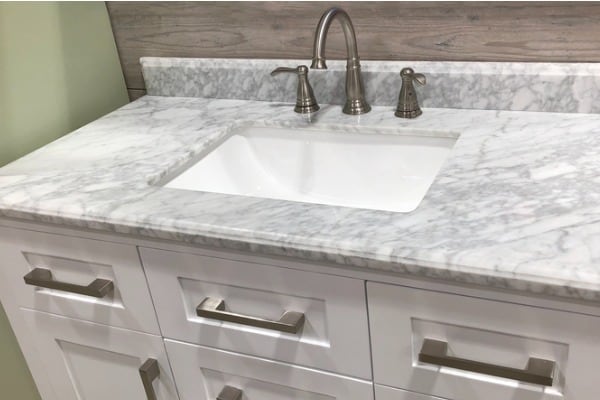
The biggest difference between the two options is the fact that marble is a natural stone and quartz is man made. Because of the natural stone, no two pieces of marble are alike.
Quartz is made of up of mostly ground quartz, mixed with a small percentage of synthetic materials.
Because quartz is produced in a factory, the overall appearance can be much more uniform than marble. When selecting a quartz countertop you can see a slab in person and be fairly confident that it will look just like that in your home. With marble, this isn’t the case.
The color and pattern options with quartz are endless, marble options, on the other hand, are more limited.
There’s absolutely no denying the fact that marble is just plain gorgeous. The rich white stone accentuated with beautiful veining in a pattern only found in nature cannot be beat.
However, marble is a delicate stone and will show its age as time goes on, which many people come to love and enjoy.
If you’re not someone who likes how aged butcher block or soapstone looks, marble may not be the right choice. Marble will gently patina over time, show scratches and etch, so you’ll need to be comfortable with this. You may need to check out quartzite, if you haven’t already. Quartzite is a natural stone and looks more like quartz than granite.
Quartz vs. marble durability
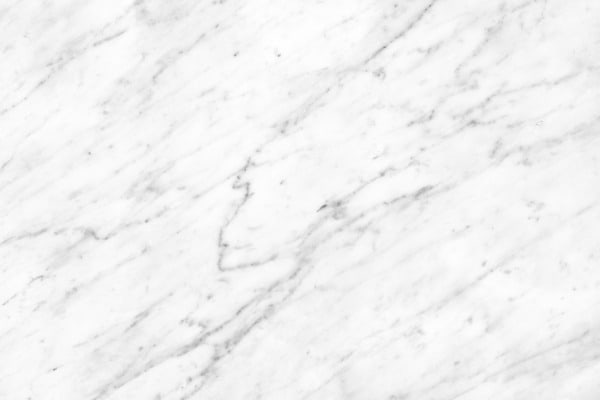
Just like with granite and other natural stones, marble is porous. Porous materials have the ability to take in whatever it comes into contact with. On the contrary, quartz is a man-made stone and is not porous.
One of the major drawbacks with marble (especially when used in kitchens) is how it reacts to acidic material. Marble is essentially calcium carbonate, which means that when it comes into contact with acidic items, a chemical reaction takes place and you’re left with an etching residue on your counter.
Acidic etching leaves a white mark on countertops, which is why many countertop installers urge those who want marble to go with an all white marble in kitchens so that the etching that so commonly happens won’t stand out too much.
If you think you can just be careful and not spill anything acidic on your counters, think again. Most people have no idea what they were doing or why the etching appeared.
If you are committed to marble, you need to be okay with this. Many people love the etching that happens as marble ages, but for others, this is not ideal.
It’s worth noting that etching does tend to fade and soften over time, but if you’re constantly cooking in your kitchen, it’s likely there will always be fresh etching on your marble countertops.
You also have to be careful with oil based food items too, like olive oil, salad dressings or peanut butter. Leaving standing water on marble is also not a good idea, either.
Quartz on the other hand, is much more spill proof. Oil based items, acidic foods and even standing water are a perfect match for quartz. Quartz counters are great surfaces for families with kids and messy cooks.
Another big difference is the fact that marble is a softer material, which lends to scratches being present in the stone over time. Quartz is scratch resistant.
Where you choose to put quartz or marble will greatly impact your decision. For example, if the durability of marble has you concerned, but you love the look, consider putting the stone in a guest bath that’s infrequently used. You might also use marble as a kitchen backsplash, too.
Which is more expensive? Quartz or marble?
Marble is more expensive, typically coming in at about 25% more than the cost of quartz.
Quartz vs. marble maintenance required
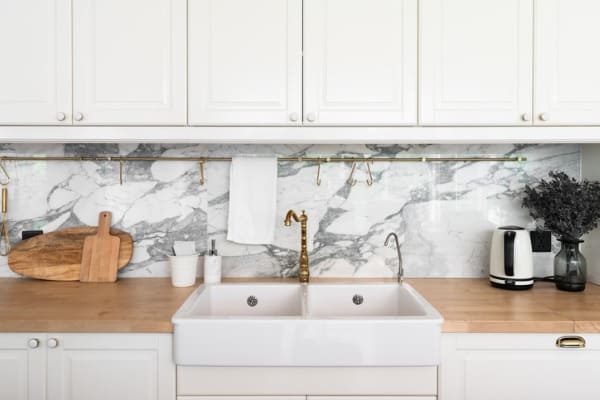
Quartz is made of natural crushed stone that is manufactured, and because of this process it’s relatively maintenance free. While you do need to use a cleaner that’s safe for quartz surfaces, you do not need to seal and polish it.
Marble, on the other hand, is a totally different ballgame in the maintenance department.
Because marble is a natural stone, it is porous. Marble installers recommend that homeowners seal countertops at the time of installation and then every three to six months after that.
You may have read that marble countertops are prone to etching and staining. Sealing is to prevent staining, not etching.
Etching is very hard to avoid with marble and really just comes with the territory. While it is a pain to have to seal marble countertops so frequently, it’s really not all that time consuming.
Is marble or quartz more heat resistant?
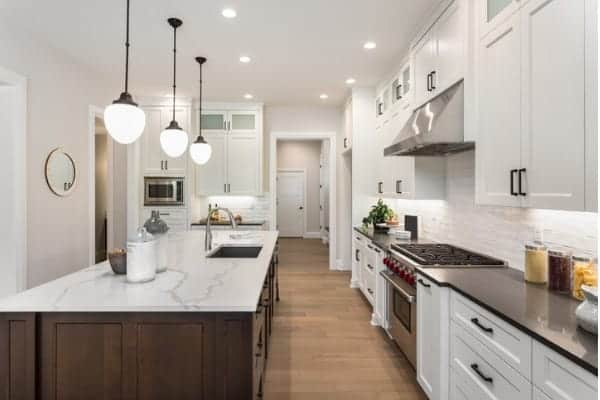
If you were looking for more reason to go with one countertop material over the other, it won’t be because one is more heat resistant. Turns out, you shouldn’t put hot items from the stove or oven directly on to either quartz or marble.
Technically, quartz is marketed as heat-resistant, but upon actually looking up what that means, it’s only up to 150 degrees. I don’t know about you, but most things I cook in the over are at least on 350, so setting something out of the oven on quartz is out.
Comparatively speaking, quartz is more heat resistant than marble, but not by very much, and you’ll need to use caution with hot items with either stone.
Main differences between quartz and marble
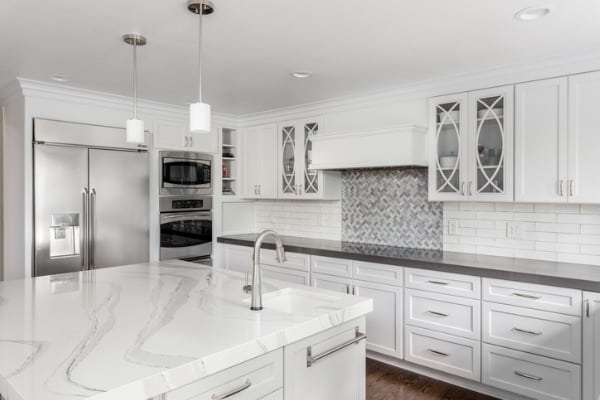
- Marble is a natural stone, quartz is a man-made material
- Marble is prone to etching, staining and chipping, whereas quartz is not
- Quartz costs about 25% less than marble
- Marble must be resealed every 3-6 months, quartz is maintenance free
- Quartz is more heat resistant than marble, but both surfaces really can’t handle too much heat
- Quartz is a far better solution for busy families that have kids and cook a lot based on overall durability
What if you really like the overall look of marble but want the durability of quartz? Take a look at Cambria, Silestone, Caesarstone for quartz that almost passes as marble!
Hopefully now that you’ve made your decision, it’s time to think about countertop edges! If you’re settled on quartz over marble, check out my post on popular white quartz counters.
You might enjoy reading other articles in our kitchen renovation series:
Our favorite kitchen cabinet paint colors
Placing lights over your kitchen island correctly
Top kitchen renovation trends
Black leathered granite countertops

